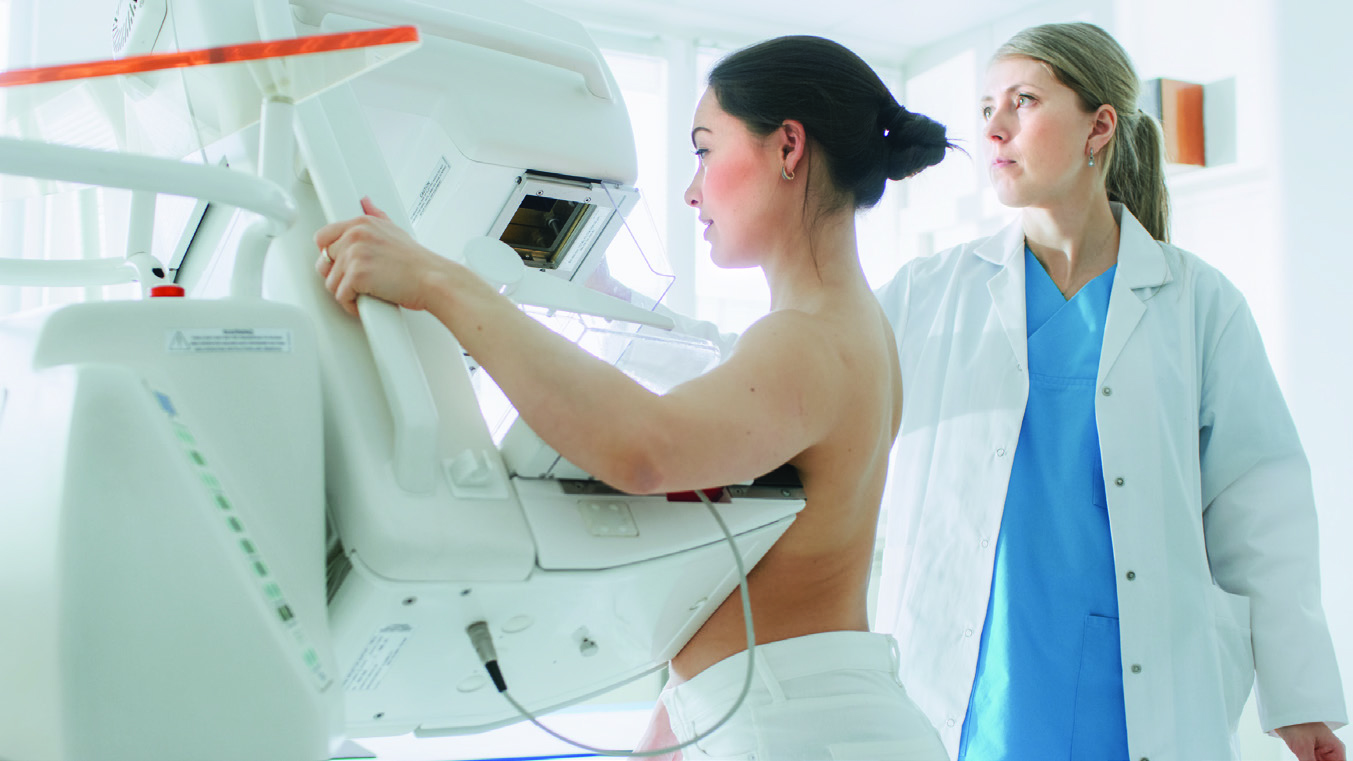From the Mummers Parade to her Inspira care team, Christina Camuccio found strength in every note of...
Read MoreEffective Monday, January 5th, Inspira Health is now at Yellow Alert Status: Masks for staff, patients and visitors in all high-risk areas across our facilities are strongly recommended.

Written by Claudia Krusch and originally published in Trendy Latina

October was national Breast Cancer Awareness month, but November was my last breast cancer screening. It serves as an important reminder to educate myself and others about the risk factors and symptoms of the disease, and the importance of taking preventative measures to mitigate the chance of a diagnosis.
According to the Centers for Disease Control, more than 200,000 women get breast cancer every year in the United States, and over 42,000 die from the disease. Anyone over the age of 50 or with a family history of the disease are especially at risk. You know I hit both marks, so it’s important for me to be proactive!
The good news is that breast cancer has high survival and cure rates if found early. That’s why it’s so important for women at high risk for hereditary cancer to know their risk, lower it if possible, and be vigilant to catch cancer early.
Inspira Health’s high risk cancer program can help women who may be at high risk in many ways, including genetic testing and personalized screening plans. Women at high risk may benefit from more frequent screenings than recommended for those with an average risk.
While people often limit their thoughts on Breast Cancer Awareness to the months of October, I’m here today to share a recent conversation with Dr. Kulkarni from Inspira Health about why breast cancer early detection is so important all year round.
A bit about Dr. Kulkarni:
Dr. Nandini Kulkarni, M.D., is a fellowship-trained, double board certified, surgical oncologist and Medical Director of Surgical Oncology for Inspira Health. With advanced training and access to clinical trials as well as a passion for teaching patients and physicians, Dr. Kulkarni dedicates her practice to improving the lives.
TL: Why is it so important for women to understand their risk of breast cancer diagnosis?
NK: Knowledge is power. The earlier you know your diagnosis, the more proactive you can be about your health. If you know what your risk is, you can prepare for it and diagnose it at an early stage. And the earlier you find it, the more curable or treatable it is.
TL: What can women expect when they come in for a mammogram? During the pandemic?
NK: If you come to Inspira for a mammogram, rest assured that our institution goes above and beyond to adhere to CDC guidelines; surfaces are wiped down, all caregivers are wearing masks, all patients are expected to wear a mask when they come, and there’s no crowd in the waiting room.
In terms of the procedure itself, receiving a 3D mammogram at Inspira is the same as the conventional 2D mammogram technology. First, an Inspira radiologist will position you in front of the mammography machine, and one of your breasts will be held in place by two compression plates.
While remaining as still as possible, the machine will capture multiple X-ray images of your breast. The procedure will then be repeated on your other breast, capturing one side-by-side view and one top-to-bottom view of each breast.
TL: Can you tell me about the recent changes to Inspira’s Risk Assessment Tool?
NK: Our high-risk cancer surveillance program uses Inspira Insight, an online assessment platform, to help us identify those at an elevated risk for hereditary cancer. The questionnaire is now available online. It is easy to complete, and your results are available immediately.
All the information is entered into the program to build a pedigree of up to three generations – alongside other information into our database. The results are used to determine if you are eligible for genetic testing, at high risk for breast cancer or eligible for risk reduction treatment.
TL: What other screening options does Inspira offer to women?
NK: Screening options are dependent on a patient’s risk factor and the characteristics of their breasts. The modality is chosen by your physician, considering your risk. We offer:
TL: What are the minimally invasive biopsy options Inspira offers?
NK: If we do find something concerning, Inspira offers image-guided, mammogram-guided, ultrasound-guided and MRI-guided minimally invasive biopsy procedures for diagnosing breast cancer.
If treatment is needed, Inspira’s holistic approach enables our oncologists to review a patient’s overall wellbeing and health history to determine the most appropriate treatment methods. Surgical treatment for breast cancer at Inspira uses a leading-edge technology for locating tumors with pinpoint accuracy to spare healthy breast tissue, called Savi Scout.
TL: What would you say to people who had biopsies but received a non-cancer result?
NK: You should be happy if the biopsy comes back negative; but if it were to be positive, I hope you feel positive about being proactive with your health. You’ve made the decision to have the information and get care if needed.
Join me in proactively taking care of your health. Be sure to:
You can check out my previous chat with Dr. Kulkarni HERE.

From the Mummers Parade to her Inspira care team, Christina Camuccio found strength in every note of...
Read More
Prostate cancer is the second most common cancer in men. While metastatic disease can feel daunting...
Read More
Explore the unique challenges and essential screening strategies for individuals with dense breast...
Read More